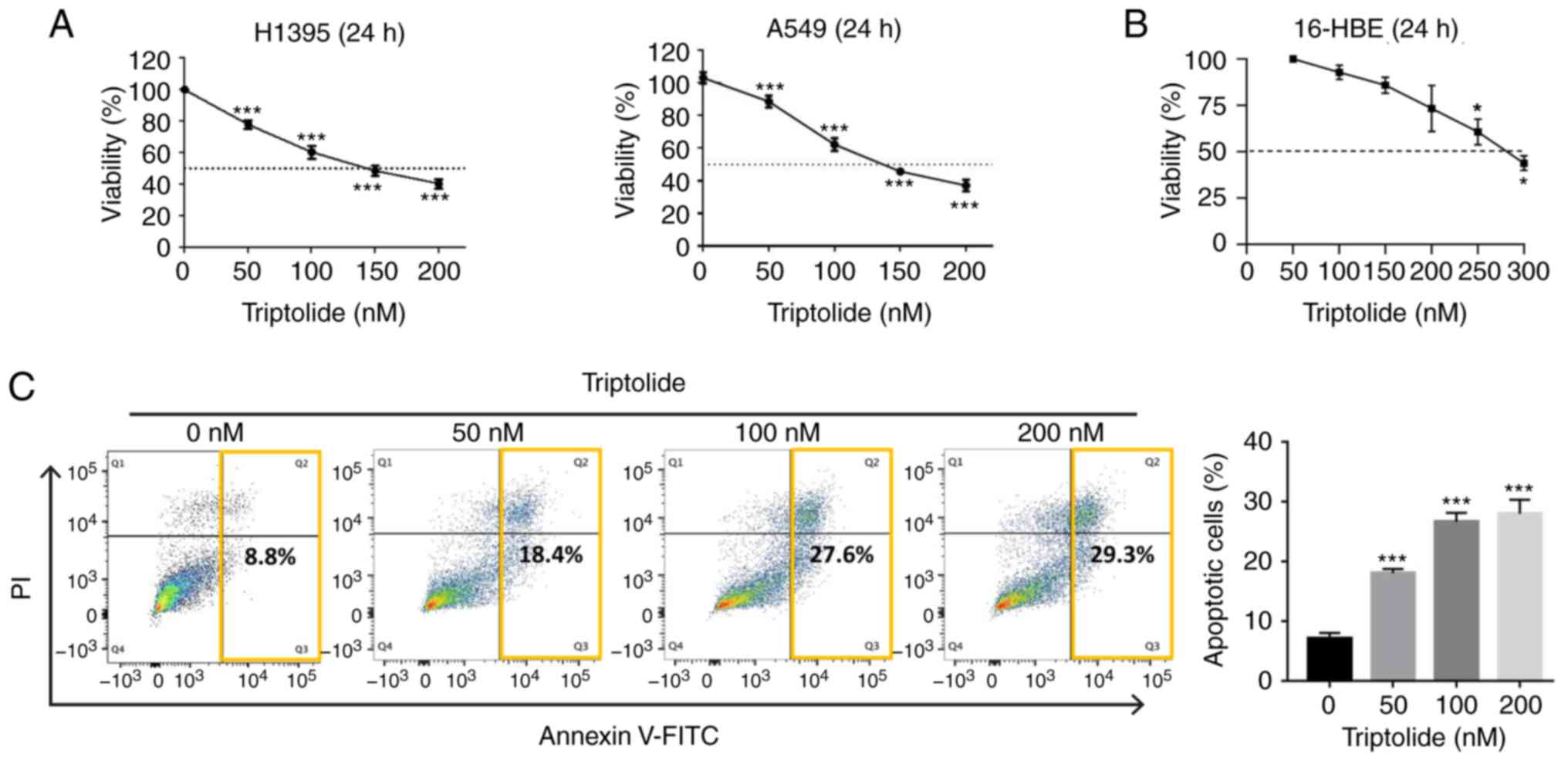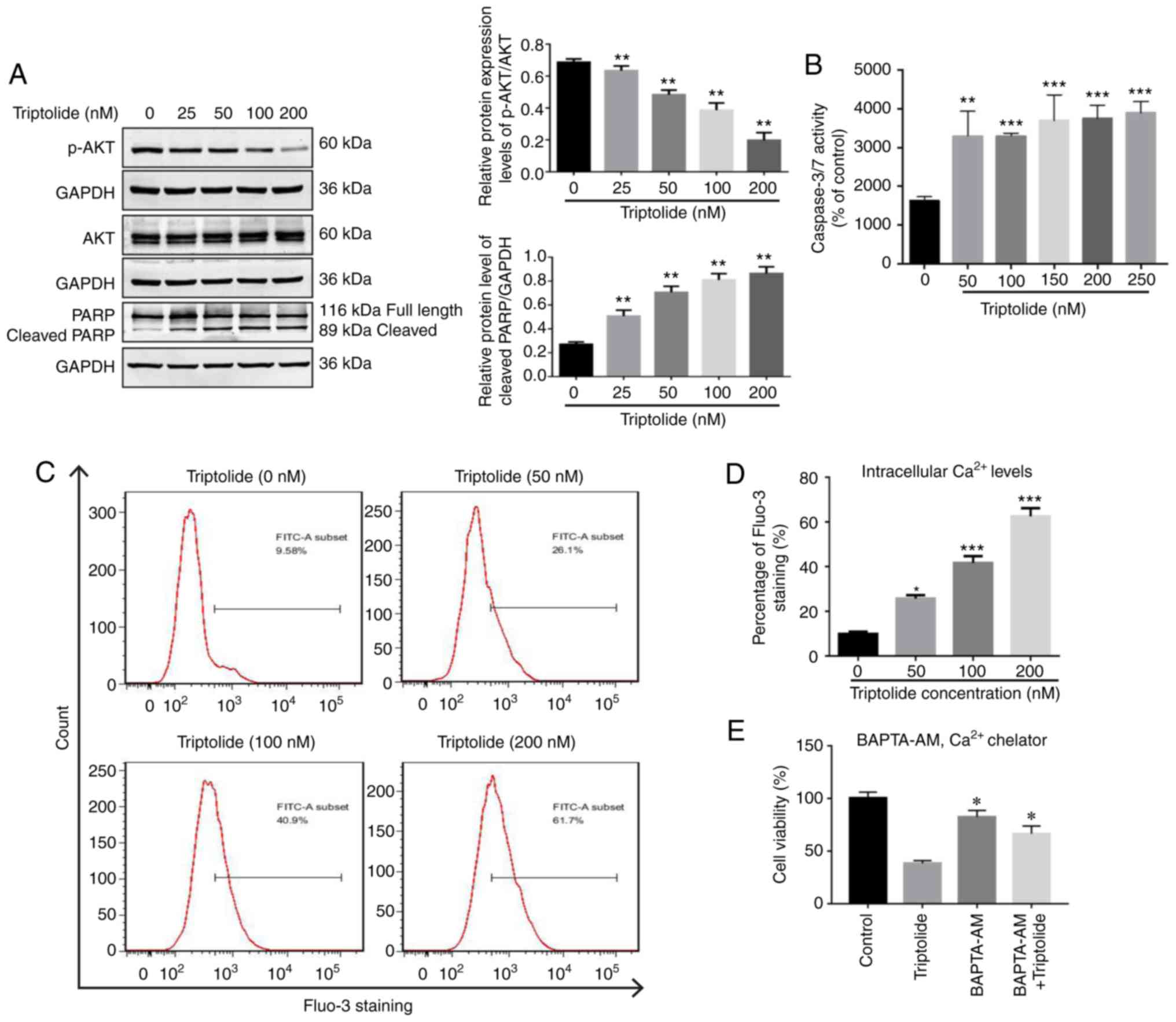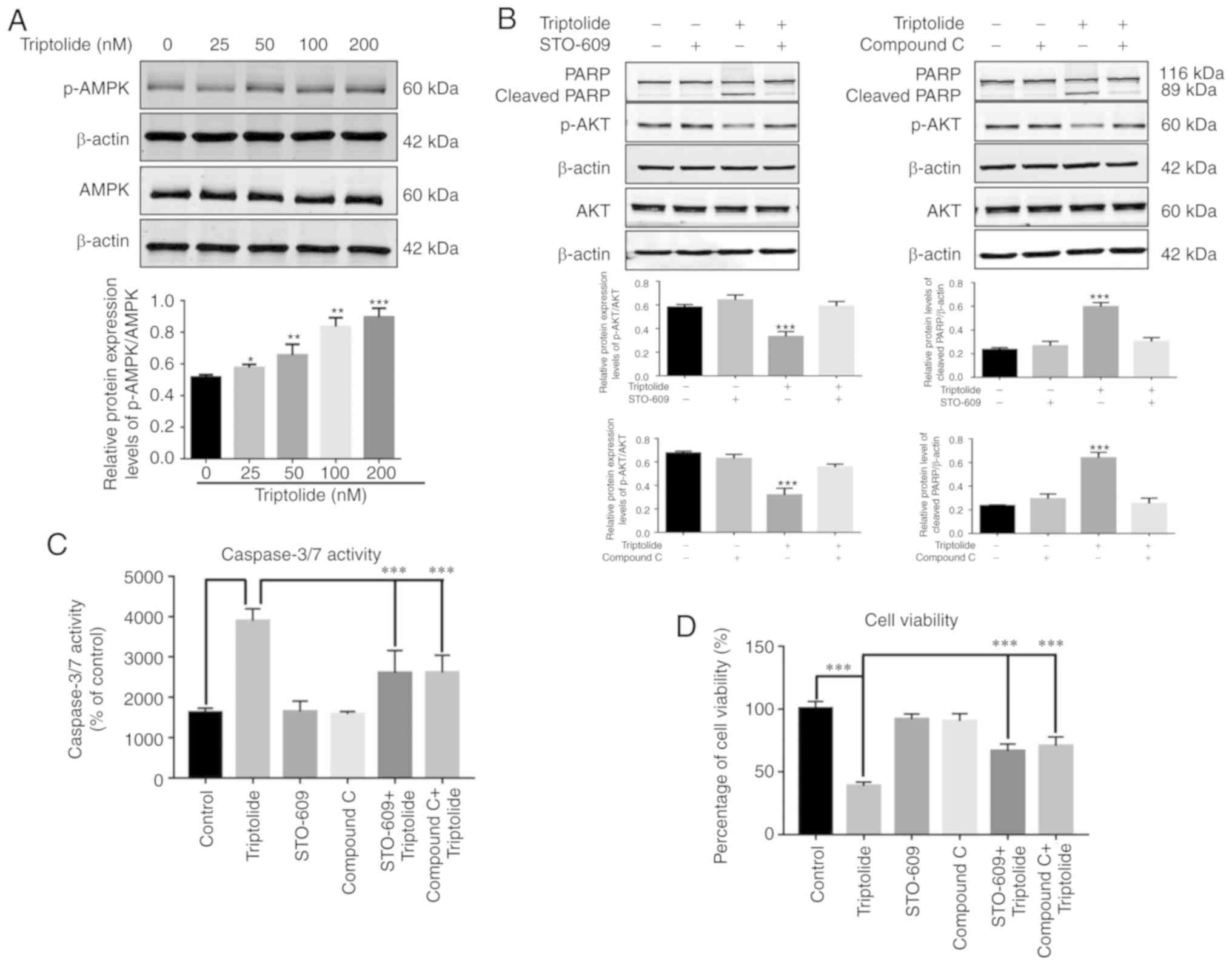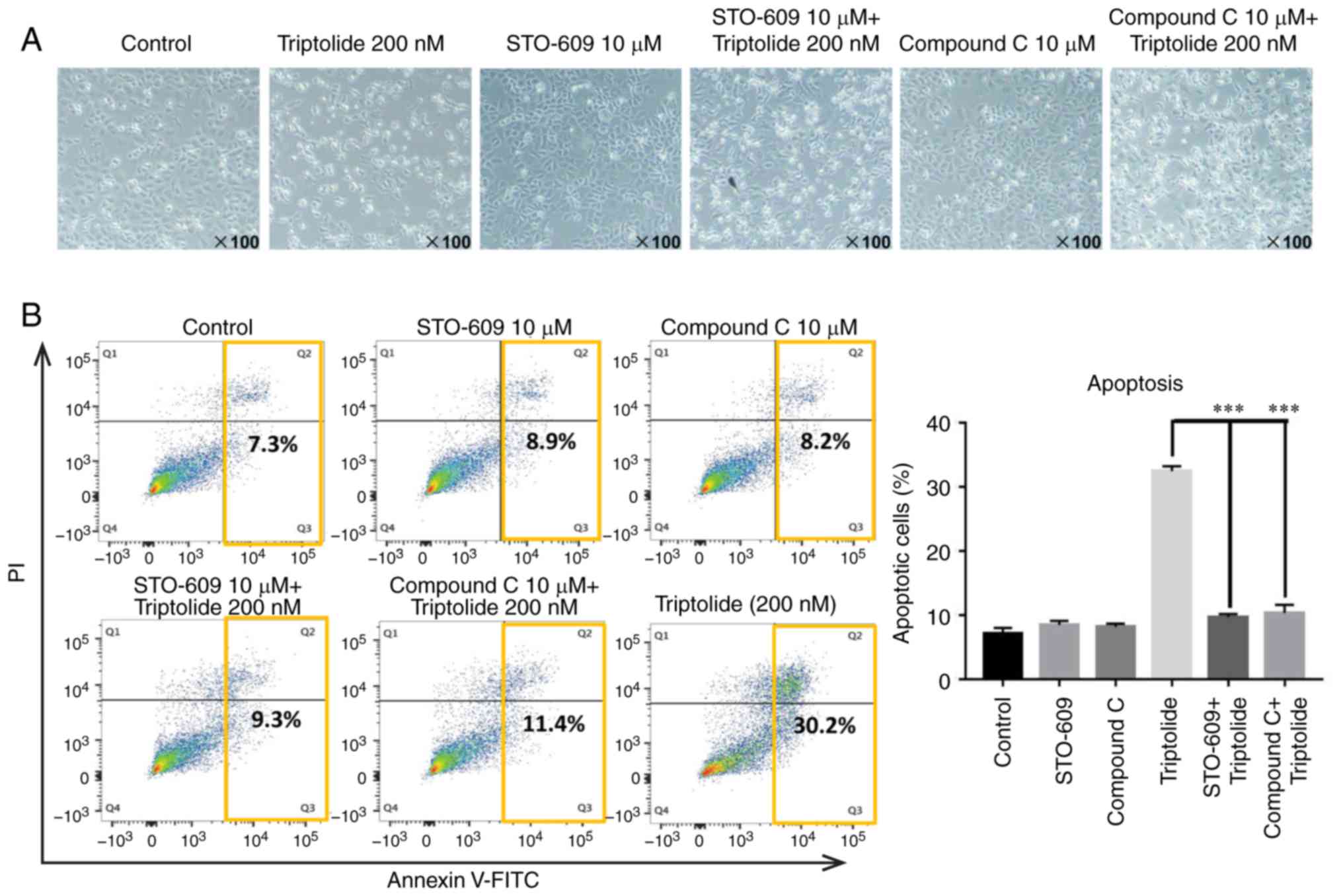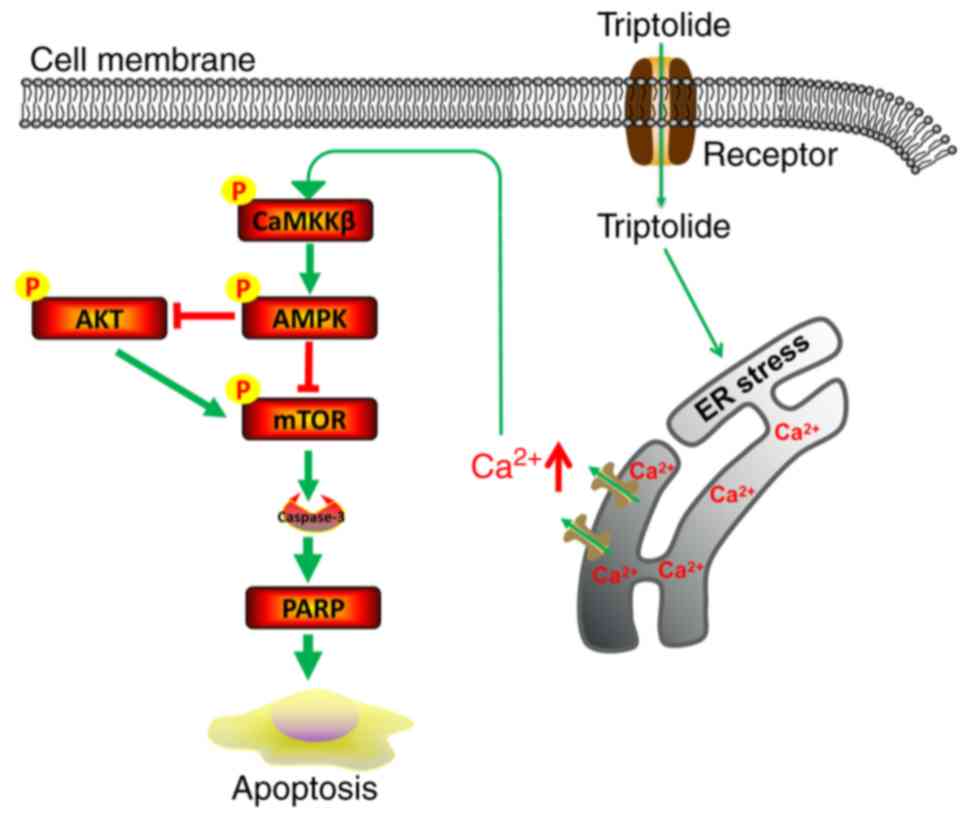|
1
|
Torre LA, Bray F, Siegel RL, Ferlay J,
Lortet-Tieulent J and Jemal A: Global cancer statistics, 2012. CA
Cancer J Clin. 65:87–108. 2015. View Article : Google Scholar : PubMed/NCBI
|
|
2
|
Silvestri GA, Gonzalez AV, Jantz MA,
Margolis ML, Gould MK, Tanoue LT, Harris LJ and Detterbeck FC:
Methods for staging non-small cell lung cancer: Diagnosis and
management of lung cancer, 3rd ed: American college of chest
physicians evidence-based clinical practice guidelines. Chest. 143
(5 Suppl):e211S–e250S. 2013. View Article : Google Scholar : PubMed/NCBI
|
|
3
|
Humphrey LL, Deffebach M, Pappas M,
Baumann C, Artis K, Mitchell JP, Zakher B, Fu R and Slatore CG:
Screening for lung cancer with low-dose computed tomography: A
systematic review to update the US Preventive services task force
recommendation. Ann Intern Med. 159:411–420. 2013. View Article : Google Scholar : PubMed/NCBI
|
|
4
|
Sugimura H, Nichols FC, Yang P, Allen MS,
Cassivi SD, Deschamps C, Williams BA and Pairolero PC: Survival
after recurrent nonsmall-cell lung cancer after complete pulmonary
resection. Ann Thorac Surg. 83:409–418. 2007. View Article : Google Scholar : PubMed/NCBI
|
|
5
|
Sung B, Park B, Yadav VR and Aggarwal BB:
Celastrol, a triterpene, enhances TRAIL-induced apoptosis through
the down-regulation of cell survival proteins and up-regulation of
death receptors. J Biol Chem. 291:169202016. View Article : Google Scholar : PubMed/NCBI
|
|
6
|
Li H, Zhang YY, Huang XY, Sun YN, Jia YF
and Li D: Beneficial effect of tripterine on systemic lupus
erythematosus induced by active chromatin in BALB/c mice. Eur J
Pharmacol. 512:231–237. 2005. View Article : Google Scholar : PubMed/NCBI
|
|
7
|
Tao X, Cush JJ, Garret M and Lipsky PE: A
phase I study of ethyl acetate extract of the Chinese antirheumatic
herb Tripterygium wilfordii hook F in rheumatoid arthritis.
J Rheumatol. 28:2160–2167. 2001.PubMed/NCBI
|
|
8
|
Kim DY, Park JW, Jeoung D and Ro JY:
Celastrol suppresses allergen-induced airway inflammation in a
mouse allergic asthma model. Eur J Pharmacol. 612:98–105. 2009.
View Article : Google Scholar : PubMed/NCBI
|
|
9
|
Liu Q: Triptolide and its expanding
multiple pharmacological functions. Int Immunopharmacol.
11:377–383. 2011. View Article : Google Scholar : PubMed/NCBI
|
|
10
|
Song JM, Molla K, Anandharaj A, Cornax I,
O Sullivan MG, Kirtane AR, Panyam J and Kassie F: Triptolide
suppresses the in vitro and in vivo growth of lung cancer cells by
targeting hyaluronan-CD44/RHAMM signaling. Oncotarget.
8:26927–26940. 2017. View Article : Google Scholar : PubMed/NCBI
|
|
11
|
Zhao F, Huang W, Zhang Z, Mao L, Han Y,
Yan J and Lei M: Triptolide induces protective autophagy through
activation of the CaMKKβ-AMPK signaling pathway in prostate cancer
cells. Oncotarget. 7:5366–5382. 2016. View Article : Google Scholar : PubMed/NCBI
|
|
12
|
Xiong J, Su T, Qu Z, Yang Q, Wang Y, Li J
and Zhou S: Triptolide has anticancer and chemosensitization
effects by down-regulating Akt activation through the MDM2/REST
pathway in human breast cancer. Oncotarget. 7:23933–23946. 2016.
View Article : Google Scholar : PubMed/NCBI
|
|
13
|
Chen YW, Lin GJ, Chia WT, Lin CK, Chuang
YP and Sytwu HK: Triptolide exerts anti-tumor effect on oral cancer
and KB cells in vitro and in vivo. Oral Oncol. 45:562–568. 2009.
View Article : Google Scholar : PubMed/NCBI
|
|
14
|
Shamon LA, Pezzuto JM, Graves JM, Mehta
RR, Wangcharoentrakul S, Sangsuwan R, Chaichana S, Tuchinda P,
Cleason P and Reutrakul V: Evaluation of the mutagenic, cytotoxic,
and antitumor potential of triptolide, a highly oxygenated
diterpene isolated from Tripterygium wilfordii. Cancer Lett.
112:113–117. 1997. View Article : Google Scholar : PubMed/NCBI
|
|
15
|
Chan SF, Chen YY, Lin JJ, Liao CL, Ko YC,
Tang NY, Kuo CL, Liu KC and Chung JG: Triptolide induced cell death
through apoptosis and autophagy in murine leukemia WEHI-3 cells in
vitro and promoting immune responses in WEHI-3 generated leukemia
mice in vivo. Environ Toxicol. 32:550–568. 2017. View Article : Google Scholar : PubMed/NCBI
|
|
16
|
Pang X, Yi Z, Zhang J, Lu B, Sung B, Qu W,
Aggarwal BB and Liu M: Celastrol suppresses angiogenesis-mediated
tumor growth through inhibition of AKT/mammalian target of
rapamycin pathway. Cancer Res. 70:1951–1959. 2010. View Article : Google Scholar : PubMed/NCBI
|
|
17
|
Lee KY, Chang W, Qiu D, Kao PN and Rosen
GD: PG490 (triptolide) cooperates with tumor necrosis factor-alpha
to induce apoptosis in tumor cells. J Biol Chem. 274:13451–13455.
1999. View Article : Google Scholar : PubMed/NCBI
|
|
18
|
McCallum C, Kwon S, Leavitt P, Shen DM,
Liu W and Gurnett A: Triptolide binds covalently to a 90 kDa
nuclear protein. Role of epoxides in binding and activity.
Immunobiology. 212:549–556. 2007. View Article : Google Scholar : PubMed/NCBI
|
|
19
|
Leuenroth SJ and Crews CM:
Triptolide-induced transcriptional arrest is associated with
changes in nuclear substructure. Cancer Res. 68:5257–5266. 2008.
View Article : Google Scholar : PubMed/NCBI
|
|
20
|
Wang J, Zhang ZQ, Li FQ, Chen JN, Gong X,
Cao BB and Wang W: Triptolide interrupts rRNA synthesis and induces
the RPL23-MDM2-p53 pathway to repress lung cancer cells. Oncol Rep.
43:1863–1874. 2020.PubMed/NCBI
|
|
21
|
Berridge MJ, Lipp P and Bootman MD: The
versatility and universality of calcium signalling. Nat Rev Mol
Cell Biol. 1:11–21. 2000. View Article : Google Scholar : PubMed/NCBI
|
|
22
|
Corcoran EE and Means AR: Defining
Ca2+/calmodulin-dependent protein kinase cascades in
transcriptional regulation. J Biol Chem. 276:2975–2978. 2001.
View Article : Google Scholar : PubMed/NCBI
|
|
23
|
Soderling TR: The Ca-calmodulin-dependent
protein kinase cascade. Trends Biochem Sci. 24:232–236. 1999.
View Article : Google Scholar : PubMed/NCBI
|
|
24
|
Kitani T, Okuno S and Fujisawa H:
Molecular cloning of Ca2+/calmodulin-dependent protein
kinase kinase beta. J Biochem. 122:243–250. 1997. View Article : Google Scholar : PubMed/NCBI
|
|
25
|
Anderson KA, Means RL, Huang QH, Kemp BE,
Goldstein EG, Selbert MA, Edelman AM, Fremeau RT and Means AR:
Components of a calmodulin-dependent protein kinase cascade.
Molecular cloning, functional characterization and cellular
localization of Ca2+/calmodulin-dependent protein kinase
kinase beta. J Biol Chem. 273:31880–31889. 1998. View Article : Google Scholar : PubMed/NCBI
|
|
26
|
Racioppi L and Means AR:
Calcium/calmodulin-dependent protein kinase kinase 2: Roles in
signaling and pathophysiology. J Biol Chem. 287:31658–31665. 2012.
View Article : Google Scholar : PubMed/NCBI
|
|
27
|
Liu JL, Mao Z, Gallick GE and Yung WK:
AMPK/TSC2/mTOR-signaling intermediates are not necessary for
LKB1-mediated nuclear retention of PTEN tumor suppressor. Neuro
Oncol. 13:184–194. 2011. View Article : Google Scholar : PubMed/NCBI
|
|
28
|
Witczak CA, Sharoff CG and Goodyear LJ:
AMP-activated protein kinase in skeletal muscle: From structure and
localization to its role as a master regulator of cellular
metabolism. Cell Mol Life Sci. 65:3737–3755. 2008. View Article : Google Scholar : PubMed/NCBI
|
|
29
|
Young LH: AMP-activated protein kinase
conducts the ischemic stress response orchestra. Circulation.
117:832–840. 2008. View Article : Google Scholar : PubMed/NCBI
|
|
30
|
Yuan HX, Xiong Y and Guan KL: Nutrient
sensing, metabolism, and cell growth control. Mol Cell. 49:379–387.
2013. View Article : Google Scholar : PubMed/NCBI
|
|
31
|
Wei C, Yao X, Jiang Z, Wang Y, Zhang D,
Chen X, Fan X, Xie C, Cheng J, Fu J and Leung EL: Cordycepin
Inhibits drug-resistance non-small cell lung cancer progression by
activating AMPK signaling pathway. Pharmacol Res. 144:79–89. 2019.
View Article : Google Scholar : PubMed/NCBI
|
|
32
|
Wu Y, Si Y, Xiang Y, Zhou T, Liu X, Wu M,
Li W, Zhang T, Xiang K, Zhang L, et al: Polyphyllin I activates
AMPK to suppress the growth of non-small-cell lung cancer via
induction of autophagy. Arch Biochem Biophys. 687:1082852020.
View Article : Google Scholar : PubMed/NCBI
|
|
33
|
Memmott RM, Gills JJ, Hollingshead M,
Powers MC, Chen Z, Kemp B, Kozikowski A and Dennis PA:
Phosphatidylinositol ether lipid analogues induce AMP-activated
protein kinase-dependent death in LKB1-mutant non small cell lung
cancer cells. Cancer Res. 68:580–588. 2008. View Article : Google Scholar : PubMed/NCBI
|
|
34
|
Han S and Roman J: Rosiglitazone
suppresses human lung carcinoma cell growth through
PPARgamma-dependent and PPARgamma-independent signal pathways. Mol
Cancer Ther. 5:430–437. 2006. View Article : Google Scholar : PubMed/NCBI
|
|
35
|
Aton E, Renault T, Gagnaire B,
Thomas-Guyon H, Cognard C and Imbert N: A flow cytometric approach
to study intracellular-free Ca2+ in Crassostrea gigas
haemocytes. Fish Shellfish Immunol. 20:493–502. 2006. View Article : Google Scholar : PubMed/NCBI
|
|
36
|
Boulares AH, Yakovlev AG, Ivanova V,
Stoica BA, Wang G, Iyer S and Smulson M: Role of poly(ADP-ribose)
polymerase (PARP) cleavage in apoptosis. Caspase 3-resistant PARP
mutant increases rates of apoptosis in transfected cells. J Biol
Chem. 274:22932–22940. 1999. View Article : Google Scholar : PubMed/NCBI
|
|
37
|
Leuenroth SJ and Crews CM: Studies on
calcium dependence reveal multiple modes of action for triptolide.
Chem Biol. 12:1259–1268. 2005. View Article : Google Scholar : PubMed/NCBI
|
|
38
|
Hawley SA, Pan DA, Mustard KJ, Ross L,
Bain J, Edelman AM, Frenguelli BG and Hardie DG:
Calmodulin-dependent protein kinase kinase-beta is an alternative
upstream kinase for AMP-activated protein kinase. Cell Metab.
2:9–19. 2005. View Article : Google Scholar : PubMed/NCBI
|
|
39
|
Yu SW, Wang H, Poitras MF, Coombs C,
Bowers WJ, Federoff HJ, Poirier GG, Dawson TM and Dawson VL:
Mediation of poly(ADP-ribose) polymerase-1-dependent cell death by
apoptosis-inducing factor. Science. 297:259–263. 2002. View Article : Google Scholar : PubMed/NCBI
|
|
40
|
Zeng Y, Sun H, Li Y, Shao M, Han P, Yu X,
He L, Xu Y and Li S: Exposure to triptolide affects follicle
development in NIH mice: Role of endoplasmic reticulum stress in
granulosa cell apoptosis. Hum Exp Toxicol. 36:82–92. 2017.
View Article : Google Scholar : PubMed/NCBI
|
|
41
|
McGinn O, Gupta VK, Dauer P, Arora N,
Sharma N, Nomura A, Dudeja V, Saluja A and Banerjee S: Inhibition
of hypoxic response decreases stemness and reduces tumorigenic
signaling due to impaired assembly of HIF1 transcription complex in
pancreatic cancer. Sci Rep. 7:78722017. View Article : Google Scholar : PubMed/NCBI
|
|
42
|
Yan P and Sun X: Triptolide: A new star
for treating human malignancies. J Cancer Res Ther. 14
(Suppl):S271–S275. 2018. View Article : Google Scholar : PubMed/NCBI
|
|
43
|
Noel P, Von Hoff DD, Saluja AK, Velagapudi
M, Borazanci E and Han H: Triptolide and its derivatives as cancer
therapies. Trends Pharmacol Sci. 40:327–341. 2019. View Article : Google Scholar : PubMed/NCBI
|
|
44
|
Xi C, Peng S, Wu Z, Zhou Q and Zhou J:
Toxicity of triptolide and the molecular mechanisms involved.
Biomed Pharmacother. 90:531–541. 2017. View Article : Google Scholar : PubMed/NCBI
|
|
45
|
Hardie DG: AMPK: A key regulator of energy
balance in the single cell and the whole organism. Int J Obes
(Lond). 32 (Suppl 4):S7–S12. 2008. View Article : Google Scholar : PubMed/NCBI
|
|
46
|
Shao JJ, Zhang AP, Qin W, Zheng L, Zhu YF
and Chen X: AMP-activated protein kinase (AMPK) activation is
involved in chrysin-induced growth inhibition and apoptosis in
cultured A549 lung cancer cells. Biochem Biophys Res Commun.
423:448–453. 2012. View Article : Google Scholar : PubMed/NCBI
|
|
47
|
Rajamohan F, Reyes AR, Frisbie RK, Hoth
LR, Sahasrabudhe P, Magyar R, Landro JA, Withka JM, Caspers NL,
Calabrese MF, et al: Probing the enzyme kinetics, allosteric
modulation and activation of α1- and α2-subunit-containing
AMP-activated protein kinase (AMPK) heterotrimeric complexes by
pharmacological and physiological activators. Biochem J.
473:581–592. 2016. View Article : Google Scholar : PubMed/NCBI
|
|
48
|
Ji H, Ramsey MR, Hayes DN, Fan C, McNamara
K, Kozlowski P, Torrice C, Wu MC, Shimamura T, Perera SA, et al:
LKB1 modulates lung cancer differentiation and metastasis. Nature.
448:807–810. 2007. View Article : Google Scholar : PubMed/NCBI
|
|
49
|
Sanchez-Cespedes M, Parrella P, Esteller
M, Nomoto S, Trink B, Engles JM, Westra WH, Herman JG and Sidransky
D: Inactivation of LKB1/STK11 is a common event in adenocarcinomas
of the lung. Cancer Res. 62:3659–3662. 2002.PubMed/NCBI
|
|
50
|
Matsumoto S, Iwakawa R, Takahashi K, Kohno
T, Nakanishi Y, Matsuno Y, Suzuki K, Nakamoto M, Shimizu E, Minna
JD and Yokota J: Prevalence and specificity of LKB1 genetic
alterations in lung cancers. Oncogene. 26:5911–5918. 2007.
View Article : Google Scholar : PubMed/NCBI
|
|
51
|
Inoki K, Kim J and Guan KL: AMPK and mTOR
in cellular energy homeostasis and drug targets. Annu Rev Pharmacol
Toxicol. 52:381–400. 2012. View Article : Google Scholar : PubMed/NCBI
|
|
52
|
Shehzad A, Lee J and Lee YS: Curcumin in
various cancers. Biofactors. 39:56–68. 2013. View Article : Google Scholar : PubMed/NCBI
|
|
53
|
Cai X, Hu X, Tan X, Cheng W, Wang Q, Chen
X, Guan Y, Chen C and Jing X: Metformin induced AMPK activation,
G0/G1 phase cell cycle arrest and the inhibition of growth of
esophageal squamous cell carcinomas in vitro and in vivo. PLoS One.
10:e1333492015. View Article : Google Scholar
|
|
54
|
Mihaylova MM and Shaw RJ: The AMPK
signalling pathway coordinates cell growth, autophagy and
metabolism. Nat Cell Biol. 13:1016–1023. 2011. View Article : Google Scholar : PubMed/NCBI
|
|
55
|
Shimizu S, Yoshida T, Tsujioka M and
Arakawa S: Autophagic cell death and cancer. Int J Mol Sci.
15:3145–3153. 2014. View Article : Google Scholar : PubMed/NCBI
|















